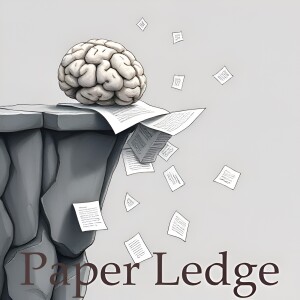

Computation and Language - MAM Modular Multi-Agent Framework for Multi-Modal Medical Diagnosis via Role-Specialized Collaboration
Hey PaperLedge crew, Ernis here, ready to dive into some fascinating research fresh off the press! Today, we’re tackling a paper that’s trying to make medical AI even smarter and more helpful – think of it as leveling up the healthcare bots we’ve been hearing so much about.
So, we all know Large Language Models, or LLMs, are getting really good at understanding and even reasoning. In medicine, that means they can help doctors diagnose diseases and figure out what's going on with a patient. But, these medical LLMs have some roadblocks. The authors of this study argue that it's difficult and expensive to keep updating their knowledge, they don't always cover all the medical bases, and they're not as flexible as we'd like.
That’s where the Modular Multi-Agent Framework for Multi-Modal Medical Diagnosis – or MAM for short – comes in. Now, that's a mouthful, but the idea behind it is pretty cool. Instead of one giant AI trying to do everything, MAM breaks down the diagnostic process into different roles, kind of like a real-life medical team.
- Think of it this way: you wouldn't expect your general practitioner to also be an expert radiologist, right?
- So, in MAM, they have different AI agents playing those roles: a General Practitioner for initial assessments, a Specialist Team for focused expertise, a Radiologist for analyzing images, a Medical Assistant to handle the data, and a Director to coordinate everything.
Each of these agents is powered by an LLM, but because they are specialized, it is easier to keep their knowledge current and relevant. It’s like having a group of experts working together, each bringing their own unique skills to the table.
The researchers found that this approach – assigning roles and encouraging diagnostic discernment (basically, each agent really focusing on their area of expertise) – actually made the AI much better at diagnosing illnesses. And the best part? Because the system is modular, it can easily tap into existing medical LLMs and knowledge databases.
To test MAM, they threw a bunch of different medical data at it - text, images, audio, and even video – all from public datasets. And guess what? MAM consistently outperformed the LLMs that were designed for only one type of input (like only text or only images). In some cases, MAM was significantly better, with improvements ranging from 18% all the way up to 365%! That's like going from barely passing to acing the exam!
“MAM achieves significant performance improvements ranging from 18% to 365% compared to baseline models.”
So, why does this matter?
- For doctors, this could mean faster, more accurate diagnoses, leading to better patient care.
- For patients, it could mean quicker access to the right treatment.
- For researchers, it opens up new avenues for developing more sophisticated and collaborative AI systems in healthcare.
The researchers even released their code online (at that GitHub link), so other scientists can build on their work. It’s all about making medical AI more effective and accessible.
But, this also leads to some interesting questions:
- How do we ensure that these AI agents are making unbiased decisions?
- And how do we balance the benefits of AI diagnosis with the important human element of doctor-patient interaction?
These are the sorts of discussion that this study sparks and it's a conversation that is well worth having.
Credit to Paper authors: Yucheng Zhou, Lingran Song, Jianbing Shen
More Episodes
All Episodes>>Create Your Podcast In Minutes
- Full-featured podcast site
- Unlimited storage and bandwidth
- Comprehensive podcast stats
- Distribute to Apple Podcasts, Spotify, and more
- Make money with your podcast












